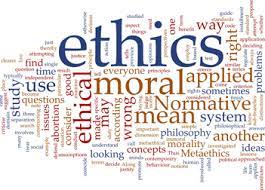Ethics, Working Collaboratively, and Values
Ethics, working collaboratively, and values are essential aspects of professional conduct in various domains. This essay explores the significance of these principles in the context of organizations and highlights their role in fostering an ethical and productive work environment.

Ethics in the Workplace
Ethics form the foundation of professional behavior and decision-making. In organizations, it is crucial to establish and uphold ethical standards to ensure fairness, integrity, and accountability. Ethical conduct is vital for maintaining the trust of stakeholders, including employees, customers, and shareholders.
One critical ethical principle is integrity. Acting with integrity involves honesty, transparency, and adherence to moral values. It entails consistently doing the right thing, even when faced with challenges or temptations. By promoting integrity, organizations can create an environment where trust thrives, fostering stronger relationships among employees and other stakeholders.
Another ethical consideration is fairness. Treating all individuals with fairness and impartiality contributes to a harmonious work environment. Right ensures equal opportunities for employees, prevents discrimination, and promotes diversity and inclusion. Organizations that prioritize fairness enhance employee satisfaction, engagement, and retention.
Additionally, ethical decision-making requires considering the consequences of actions. Leaders should assess the potential impact of their decisions on stakeholders and society as a whole. This approach helps organizations avoid unethical practices that harm individuals, communities, or the environment. Organizations can contribute to a sustainable and responsible future by prioritizing ethical decision-making.
Working Collaboratively
Collaboration is fundamental to success in today’s interconnected and complex work environments. Working collaboratively, individuals and organizations can leverage diverse perspectives, pool resources, and enhance problem-solving capabilities. Effective collaboration promotes innovation, creativity, and productivity.
Organizations must cultivate a culture that values teamwork and cooperation to foster collaboration. This involves creating opportunities for individuals to collaborate, such as team projects or cross-functional initiatives. By encouraging collaboration, organizations can break down silos, improve communication, and promote a sense of shared purpose among employees.
In collaborative environments, effective communication plays a crucial role. Transparent and open communication channels enable the exchange of ideas, knowledge, and feedback, fostering a collective mindset. Active listening, respectful dialogue, and constructive criticism are essential to effective communication within teams and across organizational hierarchies.
Collaboration also requires trust among team members. Trust is built through consistent and reliable behavior, transparency, and mutual respect. When individuals trust one another, they feel comfortable sharing ideas, taking calculated risks, and embracing collective accountability. Trust facilitates collaboration by reducing conflicts and encouraging cooperation.
Furthermore, diversity and inclusion are critical for successful collaboration. By embracing diverse perspectives, organizations can access broader insights and experiences. Diversity fosters creativity and innovation, leading to better problem-solving and decision-making. Inclusive environments empower individuals to contribute their unique talents and perspectives, fostering a culture of collaboration.
Values and their Role
Individual and organizational values guide ethics and collaboration. Values are the guiding principles that shape behavior and decision-making within an organization. They serve as a compass, directing individuals and organizations toward their desired goals and outcomes.
Individual values influence personal conduct and work ethic. When employees align their values with the organization’s, they are more likely to demonstrate ethical behavior and engage in collaborative efforts. For example, if an organization values integrity, employees who share this value will prioritize honesty and ethical decision-making.
On the other hand, organizational values set the tone for the entire workplace culture. When organizations establish and communicate their values clearly, they create a shared understanding of the expected standards of behavior. Respect, trust, and diversity foster an inclusive and collaborative environment where individuals feel valued and motivated to contribute.
Moreover, values serve as a framework for decision-making. When individuals and organizations face ethical dilemmas or collaborative challenges, their values guide them. Individuals can make choices that align with their moral principles and enhance collaboration by referring to their core values.
As a result, professional behavior in businesses must include elements of ethics, teamwork, and values. Integrity, fairness, and moral judgment are attributes of ethical conduct, which encourages accountability and trust. Collaboration is made possible through effective communication, trust, and diversity, which boosts creativity and productivity. For moral decision-making and cooperative activities, values offer a guiding framework. By adhering to these principles, organizations may build a productive work environment that supports individual and group achievement.
References
Elgoibar, P., Euwema, M. and Munduate, L. (2016). Building Trust and Constructive Conflict Management in Organizations. Cham Springer International Publishing.
Kevin William Grant (2023). Innovation Coaching. Kevin William Grant.
Kropp, B., Knight, J. and Shepp, J. (2022). How Fair Is Your Workplace? [online] Harvard Business Review. Available at: https://hbr.org/2022/07/how-fair-is-your-workplace.
Sims, R.R. (2023). The Ethically Responsible Organization. IAP.
Treviño, L.K., Weaver, G.R. and Reynolds, S.J. (2006). Behavioral Ethics in Organizations: A Review. Journal of Management, 32(6), pp.951–990. doi https://doi.org/10.1177/0149206306294258.
Ethics, Working Collaboratively, and Values,





